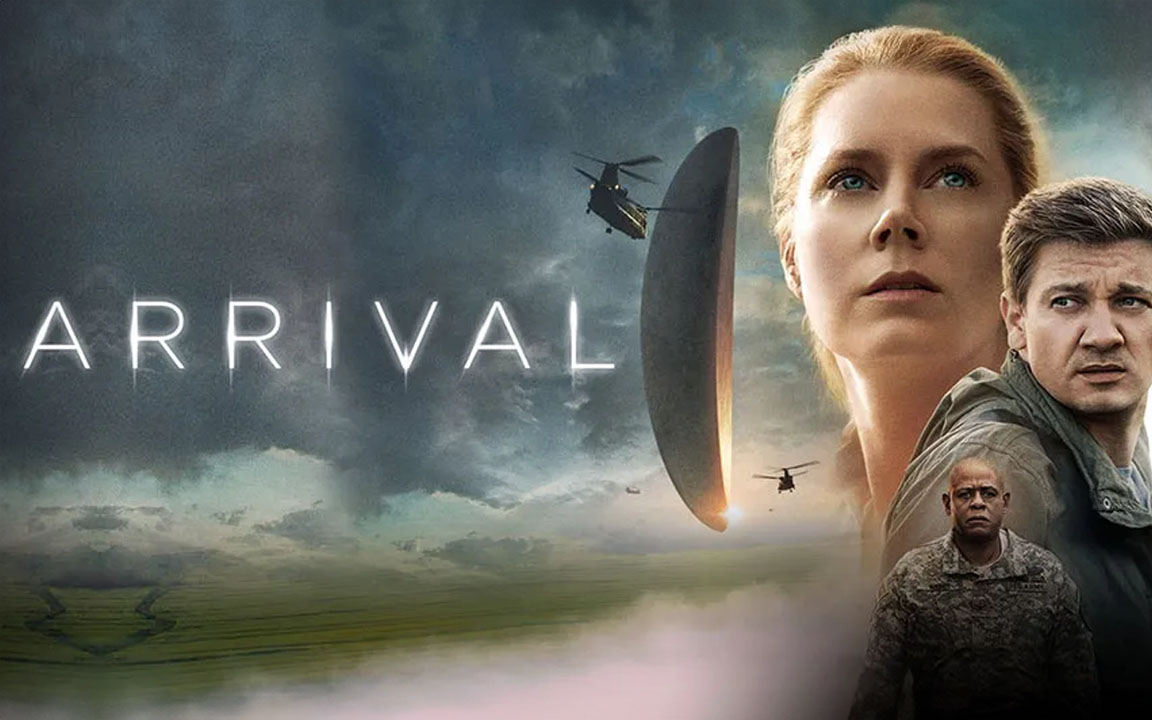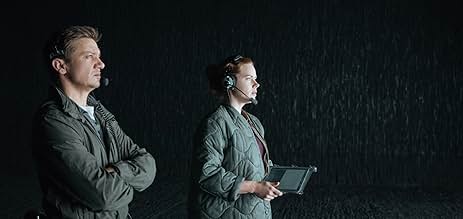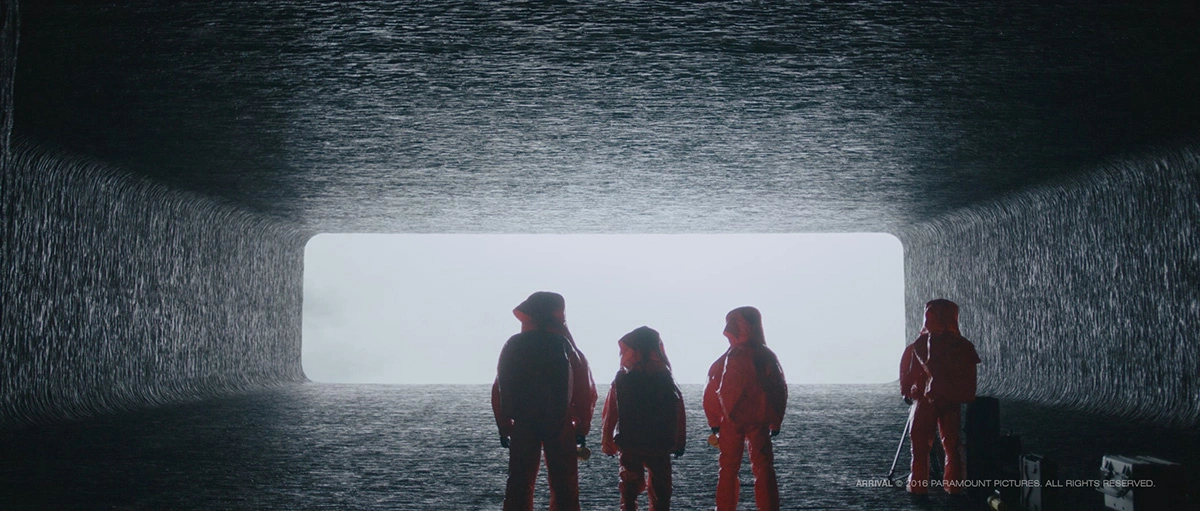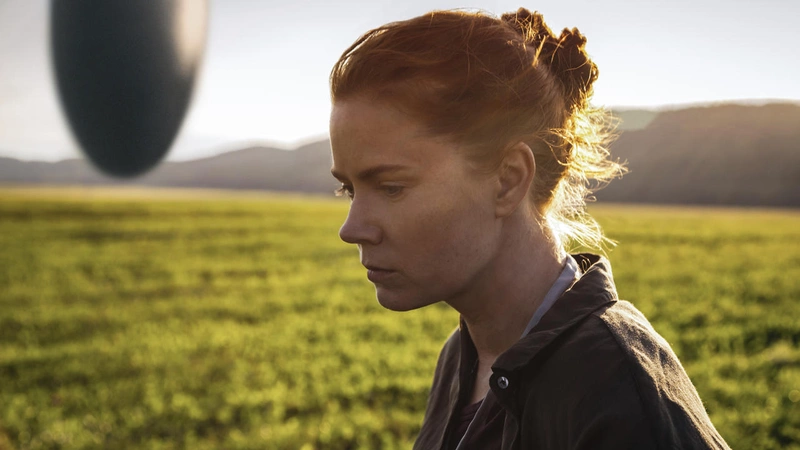Arrival (2016)

Arrival (2016), directed by Denis Villeneuve, is a mesmerizing and thought-provoking science fiction film that explores themes of communication, time, and human connection. Based on Ted Chiang’s novella Story of Your Life, the film transcends traditional alien-contact narratives, focusing instead on language and its profound implications for how we perceive the world and our place in it. With its intricate storytelling, stunning visuals, and emotional depth, Arrival is both an intellectual and emotional triumph.
The story begins when twelve mysterious alien spacecraft land in various locations around the globe. The world is gripped by fear and uncertainty as governments scramble to determine the aliens’ intentions. In Montana, linguist Dr. Louise Banks (Amy Adams) is recruited by the U.S. military to help decipher the language of the extraterrestrial visitors, referred to as “heptapods” due to their seven-limbed appearance. Alongside theoretical physicist Ian Donnelly (Jeremy Renner) and Colonel Weber (Forest Whitaker), Louise embarks on a mission to communicate with the aliens and understand their purpose.

The heptapods’ language is unlike anything humans have encountered. Written in complex circular symbols, it challenges Louise to rethink the nature of language and cognition. As she deciphers their messages, she begins to experience non-linear perceptions of time, seeing flashes of events from her past and future. This revelation not only deepens the mystery surrounding the aliens but also raises questions about free will, destiny, and the nature of human existence.
Amy Adams delivers a deeply empathetic and layered performance as Louise, grounding the film’s high-concept ideas in raw human emotion. Through her portrayal, Louise becomes a relatable and compelling anchor for the audience, navigating the intellectual challenges of the alien language while grappling with personal tragedy and profound existential revelations. Jeremy Renner’s Ian provides a strong counterpoint, bringing humor and optimism to balance Louise’s introspective journey.
Denis Villeneuve’s direction is masterful, creating an atmosphere of awe and tension that mirrors the film’s central questions. The heptapods’ ship, a monolithic black structure hovering above the ground, is an imposing and enigmatic presence. The interior, bathed in fog and light, feels both otherworldly and intimate, reflecting the film’s balance between the cosmic and the personal.
The cinematography by Bradford Young is breathtaking, with muted tones and sweeping landscapes that evoke a sense of wonder and melancholy. Jóhann Jóhannsson’s haunting score enhances the film’s emotional resonance, blending ethereal soundscapes with visceral, otherworldly tones.
At its core, Arrival is about connection—between individuals, cultures, and even species. It explores how language shapes our understanding of reality and our ability to empathize with others. The film also delves into the concept of time as non-linear, challenging traditional narratives and inviting viewers to consider how knowledge of the future might affect present choices.
The film’s climax reveals a powerful twist: the “flashbacks” Louise has been experiencing are actually glimpses of her future, including the birth and eventual death of her daughter. The heptapods’ purpose is to share their language, which enables humanity to perceive time as they do. This knowledge, they hope, will unite humanity and prepare it for challenges yet to come.
Arrival is a profound exploration of humanity’s potential for growth and understanding. It is both an intellectual puzzle and an emotional journey, encouraging viewers to reflect on the ways we communicate, the choices we make, and the connections that define us. With its masterful storytelling and timeless themes, Arrival stands as one of the most compelling and impactful science fiction films of the 21st century.











